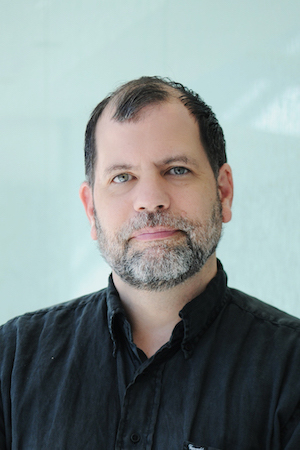George Mason University professor Tyler Cowen hopes to incentivize a stronger response to the coronavirus by distributing more than $1 million in prizes for research leading to immediate help in fighting the pandemic.
Cowen, a professor of economics within Mason’s College of Humanities and Social Sciences and a national columnist for Bloomberg, has helped put together the Emergent Ventures Prizes in the hopes of inspiring immediate breakthroughs. The money for prizes was gifted by several anonymous donors, and it’s already having its desired effects. The Mercatus Center-based Emergent Ventures announced its first four winners this past Saturday.

Tyler Cowen, General Director/Professor, Economics, Center for Study of Public Choice, CHSS. Photo by Creative Services.
The winners were Helen Chu and her team at the University of Washington that won the Social leadership prize; Avi Schiffman, who won the data gathering and presentation prize; the Imperial College researchers led by epidemiologist Neil Ferguson, who won the prize for good policy thinking; Curative Inc., the Silicon Valley-based company that won the prize for rapid speedy response.
“The main goal is to help,” Cowen said. “But another of one of our goals is to have people in philanthropy ready with quicker responses. It’s important to stay ready. We want to be able to help. When that happens, it should feel good. It will motivate us.”
Prize fields include best investigative journalism on coronavirus, best blog or social media tracking/analysis of the virus, best coronavirus policy writing, best effort to find a good treatment rapidly, best innovation in social distancing and most important innovation or improvement.
Winning projects could include scalable respirators or better social distancing innovations, such as the roll out of more meal delivery services or online religious services.
Citing the urgency of the situation, Cowen said the case for prizes over grants is stronger when you don’t know who is likely to make the breakthrough and you value the final output more than the process.
“This is focused on what can help right now,” Cowen said. “It may be able to help down the road too, but the goal is to help now.”
